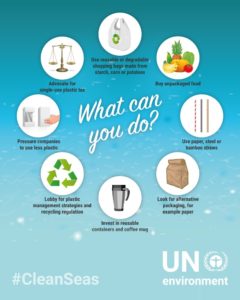Groups of plankton, jellyfish, turtles, and seabirds are migrating toward the north and south poles by as much as 10 degrees latitude. Fish stocks are down in some areas, and the future of some tropical fisheries may be in danger. Rainfall patterns globally are out of whack, and ecosystems like the Great Barrier Reef are in grave peril. Human pathogens and harmful algae blooms are thriving in warmer waters; so are hurricanes. The World Is Unprepared For The “Truly Staggering” Warming Of The Oceans
It’s World Oceans Day and Canadian Prime Minister Justin Trudeau is among global leaders calling on citizens the world over to “do our part to protect these great bodies of water and idyllic coasts for generations to come.”
 The world’s oceans cover 71% of the earth’s surface and produce almost half of the world’s oxygen. According to NASA, the average depth of the ocean is greater than 12,400 feet. “Given that light doesn’t penetrate much deeper than 330ft, most of our planet is in a perpetual state of darkness.”
The world’s oceans cover 71% of the earth’s surface and produce almost half of the world’s oxygen. According to NASA, the average depth of the ocean is greater than 12,400 feet. “Given that light doesn’t penetrate much deeper than 330ft, most of our planet is in a perpetual state of darkness.”
Oceans are also the final resting place for almost 9 million tons of plastic annually.
“Oceans have a profound impact on our way of life,” Trudeau writes in his official statement. “They are vast sources of food and energy, home to unique habitats and abundant marine life, and the site of historical moments that continue to shape the world.”
[title type=”h4″]Get Involved[/title]
[list type=”caret”]
- Take National Geographic’s Planet or Plastic pledge
- Turn the Tide on Plastic: take the Clean Seas Commitment
Reduce Fossil Fuel Consumption: Take the Nature Conservancy’s Carbon Footprint Calculator - Learn 5 of the biggest threats to our oceans, and how we can solve them
[/list]
